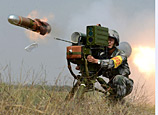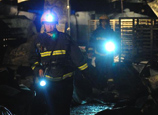
"However, it’s hard to judge whether the US government supported or got involved in the hacking. Besides, hackers can easily hide their real location and identities," Huang said.
"So technically it is irresponsible and unfounded for some people to talk about alleged hacking supported by the Chinese authorities."
As for the Washington Post report in late May about Chinese hacking on US weapons, Huang said design information of top-class weapons are usually listed as top national secrets. "Even following the general principle of secret-keeping, it should not have been linked to the Internet."
Huang said his agency has been fighting with hackers. Except for daily work of Internet security monitoring, prewarning and emergency response, CNCERT cut hackers’ remote control on 39.37 million infected mainframes in 2012.
The agency has set up Internet security cooperative relations with 91 organizations in 51 countries and regions.
Huang said a case in March explains the importance of such cooperation. At that time, South Korea suspected that Chinese hackers paralyzed the network of some local media and banks and required assistance from CNCERT. Through joint efforts, it was discovered that the IP address connected to the hacking was in the range of Chinese IP addresses but was actually used by a South Korean bank.
As for cooperation with the US, Huang said in the first four months of this year CNCERT received 32 Internet security cases from the US, among the 227 complaints from abroad.
They handled the US cases in time, except for attempted IP address attacks, which lacked sufficient proof. And they sent feedback to the US on all the cases.
"But they did not mention these efforts, instead they advocated cases that they never let us know about. Some cases can be addressed if they had talked to us, why not let us know? It is not a constructive train of thought to solve problems," Huang said.
"Besides, we have smooth communication at the civil level. I don’t understand why all levels of the US government are accusing China of cybersecurity recently. I felt it is driven by some political intentions, though I don’t know what the intentions are."
Huang said he noticed the US has kept beefing up its cyberwar forces as it hyped hacking threats from China.




















![]()
